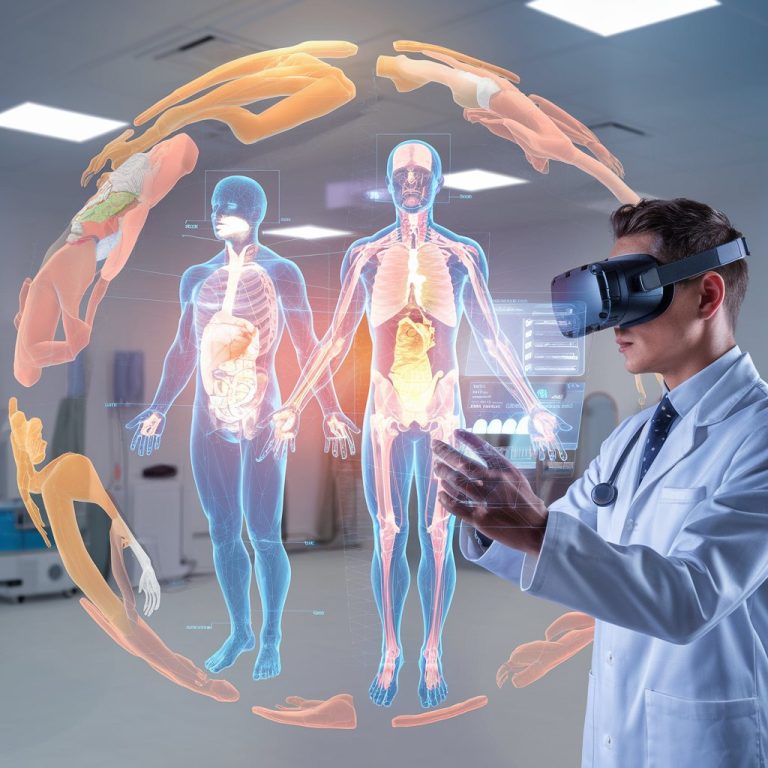Common Misconceptions About Urgent Care Services
Urgent care services play a critical role in our healthcare system, providing timely and cost-effective medical attention for various non-life-threatening conditions. However, there are several misconceptions about urgent care centers that can lead to confusion and misinformed decisions.
Misconception 1: Urgent Care is the Same as Emergency Care
Clarifying the Difference:
One of the most common misconceptions is that urgent care is synonymous with emergency care. This is far from the truth.
While both types of facilities provide immediate care, they serve different purposes. Urgent care centers are designed to handle non-life-threatening conditions that still require prompt attention, such as minor fractures, sprains, and infections.
On the other hand, emergency care is reserved for severe and life-threatening conditions like heart attacks, strokes, and severe trauma.
When to Choose Urgent Care:
Urgent care is ideal for situations where medical attention is needed quickly, but the condition is not critical. Examples include minor cuts needing stitches, flu symptoms, or urinary tract infections.
Knowing when to choose urgent care can save time and money compared to visiting an emergency room, where wait times can be significantly longer, and costs are much higher.
When to Choose Emergency Care:
Emergency care is necessary for serious, life-threatening conditions. Situations like chest pain, severe head injuries, and significant blood loss require the advanced care and resources that an emergency room provides.
Understanding these distinctions ensures that you receive the appropriate level of care when it’s needed the most.
Misconception 2: Urgent Care Centers Only Treat Minor Illnesses
Range of Services:
Another widespread misconception is that urgent care centers only handle minor illnesses. In reality, urgent care centers offer a broad range of services. They can treat various conditions, including fractures, sprains, infections, allergic reactions, and perform diagnostic services like x-rays and lab tests.
This extensive range of services means that urgent care centers can manage more complex medical issues than many people realize.
Qualified Medical Staff:
The medical staff at urgent care centers are highly qualified and capable of handling diverse medical conditions. Physicians, nurse practitioners, and physician assistants who work in urgent care facilities are trained to diagnose and treat a wide array of health issues efficiently.
Their expertise ensures that patients receive high-quality care, comparable to that provided in primary care settings.
Misconception 3: You Need an Appointment for Urgent Care
Walk-In Services:
A significant advantage of urgent care centers is their walk-in service. Unlike primary care offices, you do not need an appointment to be seen. This flexibility is one of the core benefits of urgent care, making it accessible for those who need immediate medical attention without the hassle of scheduling.
Availability and Wait Times:
Urgent care centers are typically open seven days a week, with extended hours into the evening. This availability makes them a convenient option for those who cannot see their primary care physician during regular office hours.
Additionally, while there can be wait times, they are generally shorter than those in emergency rooms, allowing patients to receive timely care.
Misconception 4: Urgent Care is Expensive
Cost Comparison:
Many people believe that urgent care is prohibitively expensive, but this is not the case. On average, the cost of an urgent care visit is significantly lower than an emergency room visit.
Urgent care centers are designed to be a cost-effective alternative for non-life-threatening conditions, providing quality care without the high expenses associated with emergency care.
Insurance and Payment Options:
Most urgent care centers accept a wide range of insurance plans, which can significantly reduce out-of-pocket costs for patients.
For those without insurance, urgent care centers often offer reasonable rates and various payment options to ensure that medical care is accessible to everyone.
Misconception 5: Urgent Care Centers Don’t Provide Follow-Up Care
Continuity of Care:
Another common myth is that urgent care centers do not offer follow-up care. While urgent care facilities focus primarily on immediate, short-term treatment, they do provide follow-up care when necessary.
This may include scheduling follow-up visits to monitor the healing process or referring patients to specialists for further treatment.
Coordination with Primary Care Providers:
Urgent care centers also coordinate with primary care providers to ensure continuity of care. After your visit, they can send records and information to your primary doctor, ensuring that your ongoing healthcare needs are managed effectively and comprehensively.
Misconception 6: Urgent Care Centers Are Not Equipped for Serious Conditions
Capabilities and Equipment:
Many people underestimate the capabilities of urgent care centers, believing they lack the necessary equipment to handle serious conditions. While it is true that urgent care centers are not equipped for life-threatening emergencies, they do have a wide array of medical equipment to treat various serious but non-critical conditions.
This includes x-ray machines, EKGs, and lab facilities for testing.
Collaboration with Hospitals:
Urgent care centers often collaborate with hospitals and specialists. If a condition requires more advanced care, urgent care providers can stabilize the patient and arrange for a transfer to a hospital, ensuring seamless and efficient care.
Misconception 7: Urgent Care is Not for Children
Pediatric Care:
Some parents believe that urgent care centers are not suitable for children. However, many urgent care centers offer specialized pediatric services.
These facilities are equipped to handle common childhood illnesses and injuries, providing a convenient alternative to pediatrician offices and emergency rooms.
Experienced Pediatric Staff:
Urgent care centers that offer pediatric services have staff trained in pediatric care. These healthcare providers have the skills and experience necessary to treat young patients effectively and compassionately, ensuring that children receive the best possible care.
Conclusion
Understanding the truth behind common misconceptions about urgent care services can help you make better healthcare decisions.
Dispelling these myths empowers patients to use urgent care services effectively, reducing the burden on emergency departments and improving overall healthcare accessibility.
As healthcare continues to evolve, understanding the role and benefits of urgent care is essential for making informed choices about your health and well-being.

